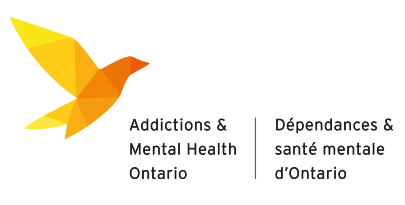
January 27, 2021
On January 25, 2021, Adrienne Spafford, Addictions and Mental Health Ontario’s CEO, met virtually with the Honourable Peter Bethlenfalvy, Minister of Finance and President of the Treasury Board and presented to the 2021 Budget Committee at Queen’s Park. Her remarks are available below.
Remarks to the 2021 Budget Committee
My name is Adrienne Spafford and I am the CEO of Addictions and Mental Health Ontario.
Our over 200 members are on the ground in communities across the province, like Ontario Shores and Durham Mental Health Services, supporting Ontarians living with addiction and mental illness to be well: with outpatient counselling, drop ins and peer support, social work and case management, withdrawal management, residential addiction treatment, harm reduction services, family support and community housing.
Even before the onset of COVID-19, we were a system in crisis.
- People living with mental illness or addiction died on average 10 to 20 years earlier than those who do not have one.1
- Youth were waiting up to 2.5 years to access publicly funded residential addiction services.2
- Supportive housing wait times were over a year and a half in many areas of the province. In Toronto alone, nearly 60 per cent of applicants on the waitlist had been waiting for housing for two or more years and those in the top 10 per cent of the waitlist had been waiting 4.5 years or longer. 3
- Thousands upon thousands of people inevitably ended up in the emergency room only to be discharged to a wait list.
And then COVID-19 hit. Based on our latest research:
Almost 74 per cent of Ontarians are experiencing a decline in their mental health.
We are seeing the devastating toll on front line health care workers, grocery store workers, delivery workers: the real heroes of COVID-19.
According to Ontario’s Chief Coroner, overdose deaths have increased during the months of the pandemic on average by up to 35-40 per cent.4
And on top of growing wait times for services, we are seeing growing rates of people experiencing homelessness; housing instability; income instability; and food insecurity.
This is why we are calling for bolder action from the government in 2021. The government rightly made a $3.8B platform commitment for mental health and addiction but the implementation of system transformation has been far too slow. This year, we are urging the government to immediately prioritize wait times for services. Here is how:
- Release a ten-year investment strategy that includes care standards, defined pathways so that we can fix navigation once and for all, wait time targets and more accountability for all providers by having them report on their performance.
- Meaningfully engage with people with lived experience (PWLE), their loved ones, caregivers and local organizations in the transformation of care.
- Urgently respond to the escalating opioid crisis, a crisis that does not discriminate and is taking our sons and daughters in communities across Ontario right in the prime of their lives.
There is hard work required to build a system that has been disconnected since its inception but we are ready for this much-needed transformation. Releasing the Roadmap to Wellness and establishing the Centre of Excellence are encouraging first steps, but we are still waiting for action beyond paper. The recovery of COVID 19 will depend on it. So will the sustainability of our healthcare system. Without both the physical and mental health of Ontarians, economic recovery is simply not possible.
____________________
1 Chesney, Goodwin and Fazel (2014). Risks of all-cause and suicide mortality in mental disorders: a meta-review. World Psychiatry, 13: 153-60.
2 Childen’s Mental Health Ontario (2020, July 30). 28,000 Ontario Children and Youth Are Waiting for Community Mental Health Services. Retrieved January 26, 2021, from https://cmho.org/28000-ontario-children-and-youth-are-waiting-for-community-mental-health-services/
3Canadian Mental Health Association (2018, April 14). New report examines supportive housing in Toronto. Retrieved January 26, 2021, from https://ontario.cmha.ca/news/new-report-examines-supportive-housing-in-toronto/
4 Ontario Drug Policy Research Network; Office of the Chief Coroner for Ontario/Ontario Forensic Pathology Service; Ontario Agency for Health Protection and Promotion (Public Health Ontario); Centre on Drug Policy Evaluation. Preliminary Patterns in Circumstances Surrounding Opioid-Related Deaths in Ontario during the COVID-19 Pandemic. Toronto, ON: Ontario Drug Policy Research Network; 2020.
[/et_pb_text][/et_pb_column_inner][/et_pb_row_inner][/et_pb_column][/et_pb_column][/et_pb_section]